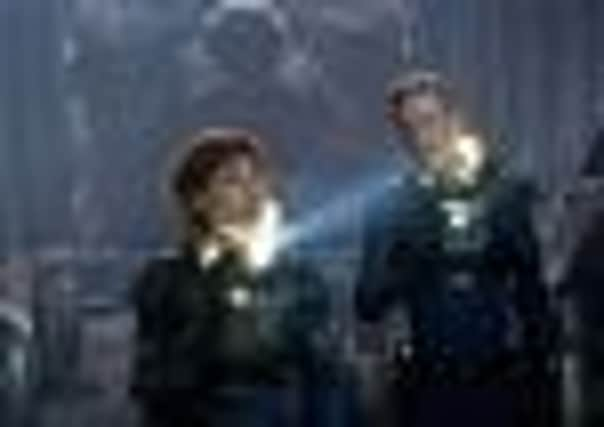Why Prometheus is Ridley Scott’s Phantom Menace


Or do you feel, like me, that it’s Ridley Scott’s Phantom Menace, an overhyped prequel to a much-loved classic that leaves you reeling at its sheer cackhandedness?
There are times when you wonder if you’ve watched the same film as everyone else did, so it was a relief, after finally seeing the year’s most talked about movie on Saturday afternoon, to trawl the internet and discover that other audience members had also spotted its gaping flaws and inconsistencies.
Advertisement
Hide AdThere are so many that it’s difficult to know where to start, but the idiotic fate of Fifield (Sean Harris) and Millburn (Rafe Spall) sums up the film’s problems quite well. Virtually the only thing we are told about these two dimensional characters is that they are 1. cowards who just want to go back to the spaceship, and 2. that Fifield’s job is to make an electronic map of the alien labyrinth the team discover.
It is a little baffling, then, that, having attempted to go back to the ship, Fifield - of all people - gets the pair of them lost. Both then decide to spend the night in the most obviously dangerous part of the cave, then treat the first alien they encounter - a terrifying slimy creature that looks like a spitting cobra - as if expecting it to behave like a bunny rabbit. This doesn’t end well, as you’d expect.
If F and M’s grisly deaths served any plot-advancing purpose, it might be less of a problem, but both are swiftly forgotten about, as is Holloway, the scientist who, in a plotline reminiscent of The Fly, looks like he might mutate into an alien. Instead, like F and M he is written out of the film minutes later.
Throughout Prometheus, in fact, storylines star and then splutter to a halt so frequently that I kept wondering if Ridley Scott was just making it up as he went along. There are hints that Charlize Theron’s character might be an android like David (echoes of Blade-Runner, interesting) but this comes to nothing (instead she gets another clunking plot twist which is both predictable and pointless). Scott also puts Noomi Rapace through a horrific alien birth scene (echoes of Alien 3, oddly), yet this too goes nowhere. Minutes later she is back on her feet and, despite having just endured major surgery, outruns a crashing spaceship faster than Theron, who we’ve been told earlier is a fitness fanatic.
Throughout I found myself wondering: what is the point of this film? Supposedly it is to explain the origins of the giant ‘Space Jockey’ found in the cockpit of an abandoned spaceship at the beginning of Alien, with a ominous hole in its chest. The Jockey, we learn, is an engineer who helped humanity evolve and then left a star map in ancient cave paintings, an invitation to come visit its planet. This planet, we discover later, is actually a weapons facility full of things designed to wipe us out - a neat, nasty twist, except that the engineer didn’t go there until thousands of years after leaving the map behind, so this twist makes no sense whatsoever. And why invite humans to a weapons facility anyway? The film seems bafflingly uninterested in answering this question, or indeed any questions at all.
Most curious is the way Scott goes out of his way to foreshadow that famous scene in Alien, but without following the idea through to its logical conclusion. Prometheus ends with the Space Jockey/engineer taking off in the same spaceship that featured in the earlier film, crashing it in a remarkably similar landscape, then dying after the same kind of alien - the first glimpse of such a creature in the entire film - bursts out of its chest. Except that, crucially, this final event happens not in the cockpit but somewhere else entirely.
Advertisement
Hide AdWas this a catastrophic continuity error? Sharp-eyed Alien fans will notice early on that the planet in Prometheus is called LV-223, whereas the planet in Alien was LV-426, which may have been the plan all along, or a last minute get out clause. Either way, I can’t help wondering whether Scott’s repeated insistence that Prometheus is not a prequel had less to do with wanting us to watch the film on its own terms than with wanting us not to pick apart its terrible script.